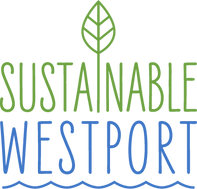
Environment & Sustainability
My Journey
Capitalism and environmentalism collide
Prior to 2016, I didn’t even know what climate change was. I had some vague awareness of the concept of global warming and believed it was something that may or may not happen, a couple hundred years from now and it would make it harder for polar bears to catch fish at the North Pole. I was oblivious. And it wasn’t until I bought my first electric car that all my misperceptions came into view. I have to admit, I didn’t buy that Tesla because of its environmental benefits, but because it was a cool fast new high tech car. But owning one opened my eyes to the world of sustainable energy and why that was even an important thing to have. That led me to learn more, and the more I learned, the worse the reality became. After the 2016 election when I saw the government was moving us aggressively in the wrong direction, I diverted a good percentage of my time to volunteering with various environmental organizations.
I did pro-bono Brand Positioning work for Save the Sound, leading to a new tagline for the organization and a more consistent approach to targeting and messaging. I wrote creative briefs for a new logo, website, and awards programs for Sustainable Westport.
Meanwhile, my marketing consultant work continued in a bit of a parallel universe. Some of my favorite assignments included things like convincing wealthy travelers to spend $1,500 a night at this hotel property instead of another, or high net worth investors to choose this financial services company, or spend more for that private jet service. While the work was certainly important to the clients that needed it and a challenging consumer insights puzzle for me, those aren’t exactly moving us in the “saving the world” direction.
I’m going to be honest with you. While I consider myself to be very well educated on climate change now, and very distressed about what it means for the future of the human race, my choices and behaviors are still kind of a jumbled contradictory mess when it comes to making the changes I know I should. I know that as a one percenter, my family is a major contributor to the climate crisis, but I’m not ready to give up having nice things. I recycle and compost and skip the straw, but then keep buying new shoes that I don’t need. We drive only electric vehicles, but our over-sized house is still heated by fossil fuels, and so is the swimming pool. I have an electric scooter to get around town, but still get on planes several times a year for leisure travel.
In my journey over the past several years from total environmental apathy to concerned activism, I’ve learned that I’m not alone in my seemingly schizophrenic response. Some consumers are deeply concerned about their moral obligation to the right thing for future generations. Others, like me, are willing to pay more for sustainable products and services, but only if it doesn’t impact their lifestyle. Some are persuaded purely with rational cost-savings benefits. And others don't care at all. Yet.
My goal now is to use my decades of planning and strategy experience to influence companies and consumers to make better choices. Both can be a tangled web of contradictions when it comes to sustainability. That’s why marketers need an experienced strategic planner who’s also well-versed in the world of sustainability – and sympathetic to the many nuances of consumer behavior - to help them navigate through it.






